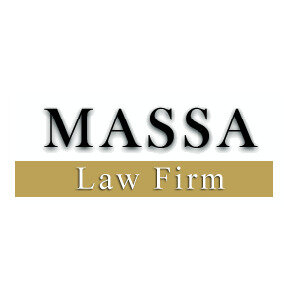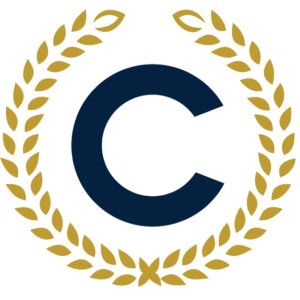Best Communications & Media Law Lawyers in Bologna
Share your needs with us, get contacted by law firms.
Free. Takes 2 min.
List of the best lawyers in Bologna, Italy
About Communications & Media Law in Bologna, Italy
Communications & Media Law in Bologna, Italy, is an area of legal practice that encompasses various issues related to telecommunications, broadcasting, advertising, digital communication, intellectual property, and the press. Italian Communications & Media Law conforms to European Union directives and the Italian Constitution, which guarantees freedom of the press and expression. This field of law is constantly evolving, especially with the rapid expansion of digital media technology and the internet.
Why You May Need a Lawyer
There are several common situations where individuals or organizations may require legal assistance in Communications & Media Law. These include:
- Disputes over intellectual property rights
- Defamation, libel, or slander cases involving the media
- Issues with advertising and marketing campaigns in terms of legality and compliance with regulations
- Compliance with broadcasting laws and regulations
- Navigating legal aspects of digital media and online publications
- Privacy and data protection concerns
Local Laws Overview
Bologna, like the rest of Italy, follows national and European regulations regarding Communications & Media Law. Key legal frameworks include the Codice della Privacy (Data Protection Code), which aligns with EU's General Data Protection Regulation (GDPR), and the Testo Unico dei Servizi di Media Audiovisivi e Radiofonici (Consolidated Act on Audiovisual Media Services and Broadcasting), which oversees broadcasting services. Understanding these regulations and how they apply at a local level is essential for complying with the law in communications and media-related activities.
Frequently Asked Questions
What rights do I have under Italian law regarding freedom of speech?
In Italy, freedom of speech is protected by the Constitution; however, this freedom must be balanced with the rights to dignity, privacy, and reputation. Restrictions may apply, especially when speech involves hate, discrimination, or incitement to violence.
Can I be held liable for user comments on my website or social media page?
As a general rule, platform operators might be held liable for user comments if they do not act promptly to remove defamatory or otherwise illegal content after becoming aware of it.
What should I do if my intellectual property is used without my permission in Bologna?
It would be advisable to consult a lawyer who can help enforce your intellectual property rights and potentially seek compensation for any unauthorized use.
Are there specific laws regulating advertising in Italy?
Yes, advertising in Italy is regulated by the Autorità per le Garanzie nelle Comunicazioni (AGCOM) and must adhere to the principles of truthfulness, protection of consumer rights, and respect for human dignity.
Do I need to comply with GDPR if my media company is based in Bologna?
Yes, if your company processes personal data of individuals within the EU, you need to comply with GDPR regulations regardless of where your company is based.
How can I protect my privacy if portrayed negatively in the media?
You might have legal recourse if your privacy rights have been infringed upon, especially if the media content is inaccurate or harmful to your reputation. It is important to seek legal advice to explore possible actions.
What is slander and how is it different from libel in Italian Law?
Slander, known as "diffamazione a mezzo parola" (defamation by word of mouth), involves spoken statements, whereas libel, "diffamazione a mezzo stampa" (defamation by means of press), is related to written or published statements.
Is it legal to use someone’s image without their consent in Bologna?
Generally, it is not permitted to use someone's image without their consent in Italy, especially for commercial purposes, due to strict privacy laws. However, exceptions can apply, so legal consultation is recommended.
What does the right to reportage mean in Italian law?
The right to reportage allows journalists to report facts and events, provided that the information is in the public interest and reported accurately and fairly.
How can I ensure that my company’s website is legally compliant with Italian online communication laws?
Consulting with a Communications & Media lawyer would ensure that your website adheres to legal standards concerning privacy policies, cookies, intellectual property rights, and other regulatory requirements.
Additional Resources
Helpful resources for seeking advice in Communications & Media Law include:
- The Ordine dei Giornalisti (Journalists Association) of Emilia-Romagna, which provides guidelines and support for media professionals
- The Autorità per le Garanzie nelle Comunicazioni (AGCOM), which oversees communications regulation
- The Italian Data Protection Authority, known as Garante per la protezione dei dati personali
Next Steps
If you require legal assistance in Communications & Media Law in Bologna, Italy, your next steps would be:
- Researching and contacting a local law firm or lawyer specializing in Communications & Media Law.
- Gathering all relevant documents and evidence for your case or query.
- Setting up a consultation with your chosen lawyer to discuss your situation and determine the best legal actions to take.
Acting early can be crucial to effectively addressing your legal issues in the realm of Communications & Media Law.
Lawzana helps you find the best lawyers and law firms in Bologna through a curated and pre-screened list of qualified legal professionals. Our platform offers rankings and detailed profiles of attorneys and law firms, allowing you to compare based on practice areas, including Communications & Media Law, experience, and client feedback.
Each profile includes a description of the firm's areas of practice, client reviews, team members and partners, year of establishment, spoken languages, office locations, contact information, social media presence, and any published articles or resources. Most firms on our platform speak English and are experienced in both local and international legal matters.
Get a quote from top-rated law firms in Bologna, Italy — quickly, securely, and without unnecessary hassle.
Disclaimer:
The information provided on this page is for general informational purposes only and does not constitute legal advice. While we strive to ensure the accuracy and relevance of the content, legal information may change over time, and interpretations of the law can vary. You should always consult with a qualified legal professional for advice specific to your situation.
We disclaim all liability for actions taken or not taken based on the content of this page. If you believe any information is incorrect or outdated, please contact us, and we will review and update it where appropriate.













